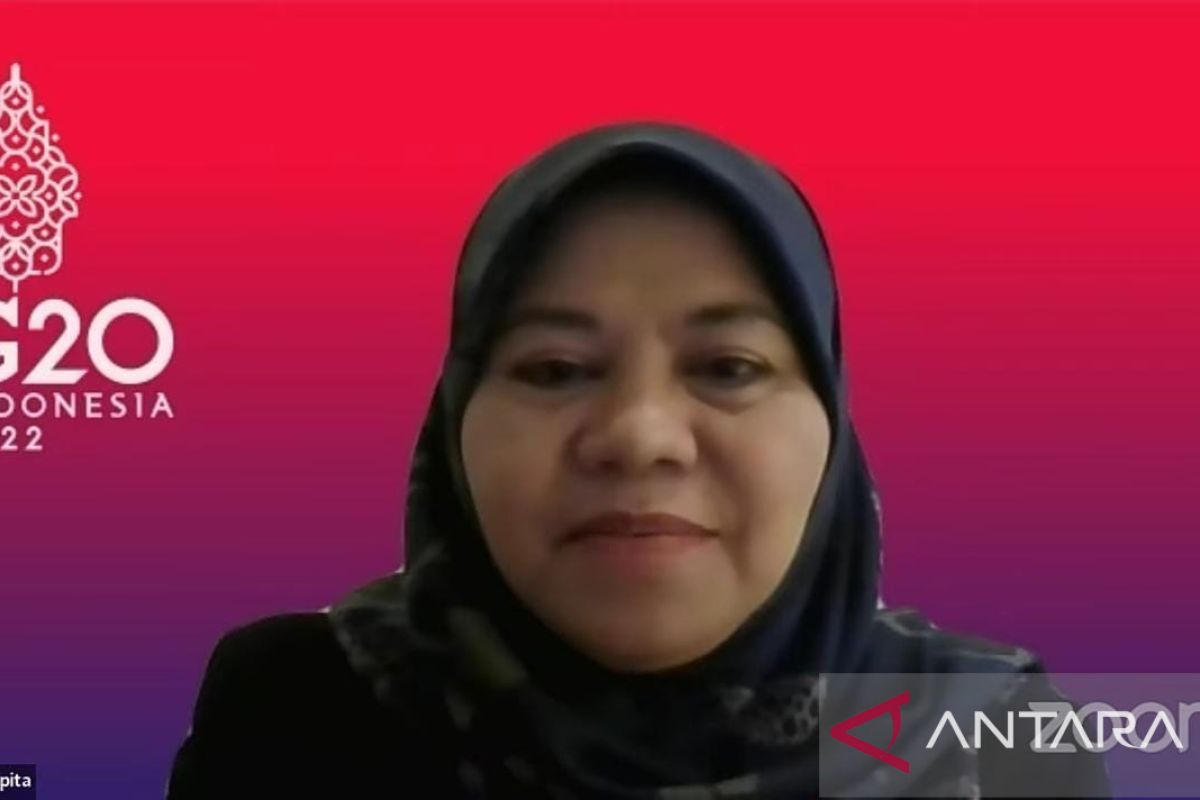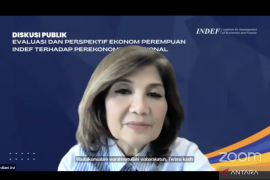During the pandemic, fiscal policy plays a role in maintaining the people's purchasing power and keeping people from falling into deeper povertyJakarta (ANTARA) - The fiscal policy implemented by the government has been effective in reducing poverty and economic inequality during the COVID-19 pandemic, the Finance Ministry's Fiscal Policy Agency (BKF) analyst, Dewi Puspita, stated.
"During the pandemic, fiscal policy plays a role in maintaining the people's purchasing power and keeping people from falling into deeper poverty," Puspita noted during a public discussion held by the Institute for Development of Economics and Finance (INDEF) here on Wednesday.
Puspita said one of these policies is the social protection program that has succeeded in maintaining the people's purchasing power and preventing the poverty rate from escalating.
Related news: Sri Mulyani praises China's support in establishing FIF
Earlier, Statistics Indonesia (BPS) recorded that the number of poor people in September 2021 had reached 26.5 million, or 9.71 percent of the total population.
During the pandemic, the government also maximized its fiscal policy through various social protection programs comprising the pre-employment card program, daily necessities package (sembako) card, Family Hope Program (PKH), direct cash assistance for village funds (BLT Dana Desa), and subsidies for buying fuel, electricity, and cooking oil.
Meanwhile, Finance Minister Sri Mulyani Indrawati emphasized that the state budget (APBN) will continue to be utilized as a shock-absorbing measure to maintain the people's purchasing power.
Related news: Finance Ministry urges youth to help maintain unity
According to Puspita, while determining the fiscal policy, the government has paid attention to various characteristics of poverty related to the region and the level of household expenditure as well as divided the fiscal strategy into the short-, medium-, and long-term.
With the various implemented policies, Puspita expressed optimism that the rates of poverty and economic inequality in Indonesia would plummet in future.
"The hope is that in future, (the rates) will be even lower, so that poverty will decrease further along with various efforts made by the government," she added.
Related news: Gov't committed to addressing climate change for public good: minister
Related news: Indonesia needs US$243 billion to provide green electricity: Minister
Translator: M Heriyanto, Kenzu Tandiah
Editor: Fardah Assegaf
Copyright © ANTARA 2022












